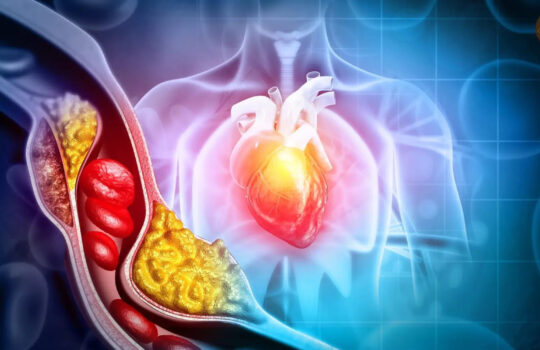Ghee is saturated or unsaturated? – Shahjighee

Ghee saturated fat is the most important component of ghee nutrition. However, because of its high-fat content, ghee saturated fat was almost always avoided in the regular diet.
It was assumed that high-fat content could be harmful to human cardiac health, and a ghee diet could be one cause of high cholesterol levels in the blood. But those were the days! Because of its high fat content, grass-fed Ghee is now considered a 21st-century superfood.
Because of its nutritional benefits and antioxidant support due to the saturated fat content of ghee, dieticians and nutritionists recommend this dairy product as one of the best dairy products for maintaining good heart health and immunity.
Is ghee saturated or unsaturated?
What is saturated fat in ghee?
Saturated fat is a type of fat that is solid at room temperature and is typically found in animal-based products such as ghee, butter, cheese, and meat. Saturated fats are composed of long-chain fatty acids, and they are considered \”saturated\” because they are saturated with hydrogen molecules.
How much saturated fat in ghee?
The exact amount of saturated fat in ghee can vary depending on the source of the butter used to make it as well as the method of production. However, on average, ghee contains around 60-65% saturated fat.
This means that for every 100 grams of ghee, 60-65 grams of the total fat content would be saturated fat. It\’s worth noting that the American Heart Association (AHA) recommends that saturated fat should account for no more than 5 to 6% of total daily calorie intake in order to maintain a healthy diet. So, it\’s important to consume ghee in moderate amounts as part of a balanced diet.
It\’s also worth noting that ghee also contains monounsaturated and polyunsaturated fats, which are considered beneficial for health.
Does ghee have unsaturated fat?
Yes, ghee does contain small amounts of unsaturated fats in addition to saturated fats. The exact ratio of saturated to unsaturated fats in ghee may vary depending on the source and method of production. However, it is important to note that the majority of the fat content in ghee is saturated.
Also Read:
Differences between saturated and unsaturated fats
Saturated Fats |
Unsaturated Fats |
|
|---|---|---|
| Consistency | Solid at room temperature | Liquid at room temperature |
| Sources | Found in animal products and some plant oils like coconut oil | Found in plant-based foods like nuts, seeds, and oils like olive oil |
| Health Effects | High intake linked to health problems like heart disease | Moderate intake can improve blood cholesterol levels and reduce risk of heart disease |
| Examples | Butter, lard, and coconut oil | Olive oil, avocado, nuts |
It\’s important to note that while both types of fats can be found in a variety of foods, a diet high in saturated fat has been linked to negative health effects, while a diet higher in unsaturated fats may have health benefits.
Different types of fat content in ghee
Desi ghee, also known as traditional clarified butter, is made from the milk of cows or buffaloes. It is rich in saturated fats, including:
- Triglycerides: These are the most common type of fat found in desi ghee and make up around 80-85% of the fat content.
- Monounsaturated fats: These are healthy fats that can help to lower cholesterol levels and reduce the risk of heart disease. They make up about 10-15% of the fat content in desi ghee.
- Polyunsaturated fats: These are also considered healthy fats and can help to reduce inflammation in the body. They make up about 2-3% of the fat content in desi ghee.
- Cholesterol: Desi ghee also contains cholesterol, a type of fat that is important for maintaining healthy cell membranes and producing hormones.
- Conjugated linoleic acid (CLA) is a type of omega-6 fatty acid found in desi ghee which may have some health benefits, such as reducing the risk of cancer.
It is important to note that though Desi ghee contains some healthy fats, it is high in saturated fats, which are not good for health when consumed in excessive amounts. It should be consumed in moderation as part of a balanced diet.
Ghee contains high fat content: Why it is heart friendly?
Ghee, a form of clarified butter, does contain high levels of saturated fat. However, it is also a rich source of beneficial fats, such as short-chain and medium-chain fatty acids, which may have a positive impact on heart health. Additionally, ghee is also a rich source of fat-soluble vitamins such as vitamin A, D, E, and K, which can support overall health.
It is also considered a good fat for cooking as it has a high smoke point, which means it can be heated at high temperatures without breaking down and producing harmful smoke. It\’s important to note that while ghee has some potential health benefits, it should still be consumed in moderation as part of a balanced diet.
Benefits of Saturated Fat in Ghee
Saturated fats, such as those found in ghee, have been shown to have a number of potential health benefits. Some of the benefits of the saturated fat found in ghee include:
- Supporting heart health: Saturated fats, like those found in ghee, may help to raise HDL (good) cholesterol levels, which are associated with a lower risk of heart disease.
- Boosting the immune system: Ghee is a good source of short-chain and medium-chain fatty acids, which have antimicrobial properties and may support the immune system.
- Improving digestion: Ghee is rich in butyric acid, a short-chain fatty acid that has been shown to support the health of the gut and improve digestion.
- Supporting brain health: Ghee is a good source of fat-soluble vitamins, such as vitamin K2, that support brain health.
- Promoting healthy skin and hair: Ghee is a rich source of fat-soluble vitamins that can promote healthy skin and hair.
It\’s important to note that while ghee has some potential health benefits, it should still be consumed in moderation as part of a balanced diet.
Ghee saturated fat: Is it Good or Bad?
In comparison to regular dairy butter, ghee\’s saturated fat contains up to 25% medium and short-chain fatty acids, whereas butter contains only 12-15%. Butyric acid, an omega-3 short-chain fatty acid found in pure ghee, has been linked to improved gastrointestinal health.
Butyrate is a natural supplement that promotes colon health. Ghee benefits people of all ages and lifestyles; thus, ghee\’s saturated fat is beneficial.
Ghee is mostly made up of saturated fats derived from milk fat, with almost no trans fats. This dairy staple is beneficial to health when consumed in moderation due to its healthy saturated fat content.
Conclusion
In conclusion, ghee is a form of clarified butter that is rich in fat, with around 60-65% of its total fat content coming from saturated fat. While saturated fat has traditionally been linked to an increased risk of heart disease, new research suggests that not all saturated fats are the same. Some studies have suggested that saturated fats from natural sources like ghee may not have the same negative impact on health as saturated fats from processed foods.
While ghee does contain a high level of saturated fat, it is also a rich source of beneficial fats, such as short-chain and medium-chain fatty acids, and fat-soluble vitamins such as Vitamins A, D, E, and K, which can support overall health. However, ghee should be consumed in moderation as part of a balanced diet, taking into account the daily recommended saturated fat intake.












